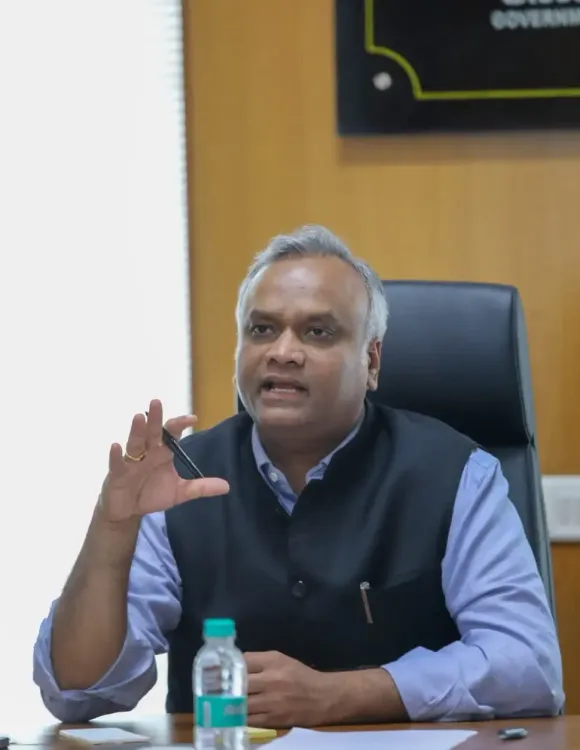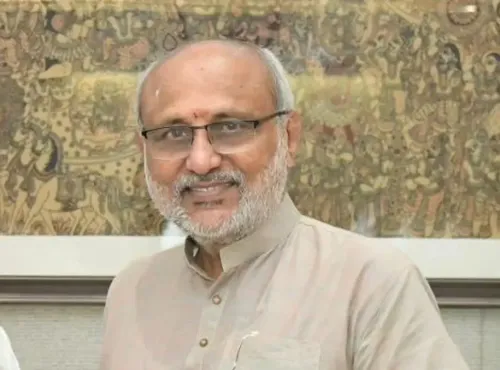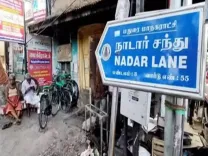Is Bengaluru's Traffic Problem a Sign of Growth?

Synopsis
Key Takeaways
- Bengaluru's traffic issues reflect its growth.
- 75.5% of the city's population is employed.
- 47% of office space sold in top cities belongs to Bengaluru.
- 1.2 crore vehicles registered in the city.
- Government addressing challenges collaboratively.
Bengaluru, Oct 10 (NationPress) Karnataka's Minister for RDPR, IT and BT, Priyank Kharge, stated on Friday that the traffic congestion in Bengaluru serves as a reflection of the city's remarkable growth.
While speaking at the Mobility Symposium 2025, Kharge highlighted the significance of Bengaluru's traffic, noting, "75.5 percent of Bengaluru's populace is part of the workforce, ranking us fourth globally. If you ask me, it's a positive challenge. Many believe that Bengaluru faces traffic troubles, but we are experiencing these issues due to our growth."
He elaborated, "Last year, nearly 77.92 million square feet of office space was acquired by global capability centers across the top seven cities, with 47 percent attributed to Bengaluru. This year, we've already recorded the sale of around 14.5 million square feet dedicated solely to global capability centers, not including other office spaces."
"This illustrates the growth we are witnessing. The city has welcomed the highest influx of migrants due to job opportunities, resulting in 1.2 crore vehicles being registered—approximately 82 lakh two-wheelers and 25 lakh four-wheelers," stated Minister Kharge.
In a post on social media platform X, he remarked, "Bengaluru’s mobility narrative encapsulates both our achievements and our hurdles. As one of the world’s fastest-growing cities, our GDP is anticipated to soar over 8.5 percent annually for the next decade."
The government is addressing these challenges in partnership with think tanks and corporate leaders, as Kharge emphasized.
Recently, the Congress-led government and Deputy CM D.K. Shivakumar, who also oversees Bengaluru Development, encountered considerable backlash from IT sector executives concerning inadequate road infrastructure and the ongoing pothole crisis in the city. His remarks challenging IT firms "not to blackmail" and "go where you please" sparked significant controversy.









